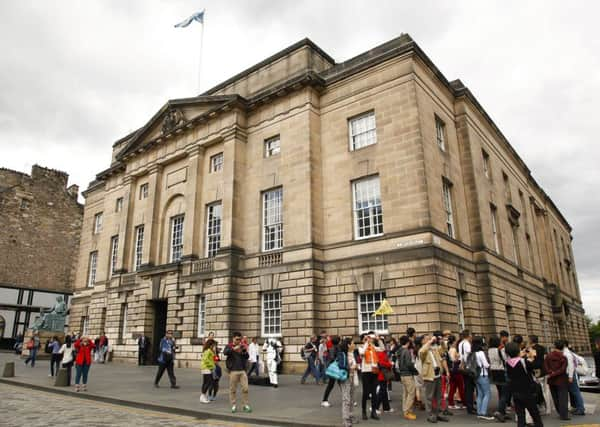Leaders: Case for verdict change may yet be not proven


Even before Sir Walter Scott famously labelled it the “bastard verdict”, Scotland’s finest legal minds were grappling with that famous anomaly of our justice system: “not proven”.
Used by juries to acquit the accused where there is insufficient evidence for a guilty verdict, not proven is coming under renewed scrutiny thanks to a bill being brought forward by Labour MSP Michael McMahon.
Advertisement
Hide AdAdvertisement
Hide AdUnder the proposed Criminal Verdicts (Scotland) Bill, the not proven verdict would be scrapped in criminal trials, leaving juries with a simple choice between guilty or not guilty.
As a safeguard, the number of jurors needed for a guilty verdict would be increased from eight to ten.
In a written submission to Scottish Parliament’s justice committee, John Hutchison, a justice of the peace and honorary sheriff, calls for not proven to be retained, describing attempts to remove it as “media-driven”.
Mr Hutchison would rather see the not guilty verdict scrapped, leaving juries with a simple choice between whether a case has been proven or not.
He blames the media for the public’s desire to see “exculpatory” sentences and calls on the legal profession to better argue the case for what is often described as Scotland’s “third verdict”.
But should Mr Hutchison get his wish and the not guilty verdict be removed, it would mean a lot of defendants leaving court under a cloud, with the public assuming that the only thing preventing a guilty verdict was a lack of evidence.
Indeed, a submission from James Chalmers, regius professor of law at the University of Glasgow and Fiona Leverick, professor of Criminal Law and Criminal Justice at the same institution, describes this argument as an “unhelpful distraction”.
Professors Chalmers and Leverick argue that because everyone is innocent until proven guilty, any person against whom a charge is not proven is entitled to be declared innocent in law.
Advertisement
Hide AdAdvertisement
Hide AdMr Hutchison is also wrong to suggest the media has undue influence in this area.
This is a hugely complicated and contentious area which has split the finest legal minds for centuries.
The future of not proven will not be decided by newspaper columnists.
However, unlike the mighty stooshie created over Kenny MacAskill’s plan to scrap corroboration, it does seem as if there is a now a willingness to remove not proven.
The majority of respondents to a Scottish Government consultation on the issue were in favour.
Whatever happens, nothing is likely to be decided any time soon.
Facing a huge backlash from the legal profession, Mr Matheson wisely choose to kick plans to scrap corroboration into the long grass when he succeeded Mr MacAskill last year.
With an election in sight, it’s extremely unlikely any moves will be made on not proven. As for the fate of Scotland’s “bastard verdict” – the jury is still out.
The stars look very different today
Advertisement
Hide AdAdvertisement
Hide AdIn a week marred by the death of David Bowie, it was perhaps fitting that Britain would be transfixed by a space walk. Stepping outside his space station for the first time yesterday, Major Tim Peake became the first “official” British astronaut to achieve the feat.
While English-born Michael Foale took part in an spacewalk in 1995, the astronaut had dual British and US citizenship and therefore “flew” as an American.
But while yesterday’s mission was a momentous occasion, it did not go entirely to plan. Nasa ended the spacewalk early after Major Peake’s US colleague reported water in his helmet.
All spacewalks must be terminated under such circumstances after an incident in 2013, when a European astronaut developed a significant helmet leak.
Luca Parmitano had to be helped back to the airlock on the space station when a large amount of water leaked out during a spacewalk – obscuring his vision.
But despite yesterday’s problems, those watching from the safety of planet Earth were gripped.
The race for space is one that can still captivate like very little else.
For those of a certain age, space travel continues to fire the imagination.
Advertisement
Hide AdAdvertisement
Hide AdIt is the same generation perhaps in need of something uplifting following the death of Bowie – that chronicler of all things celestial – earlier in the week.
In their four-hour spacewalk yesterday, the astronauts of the International Space Station duly delivered.
Congratulations Major Tim, you’ve really made the grade.